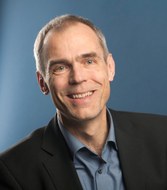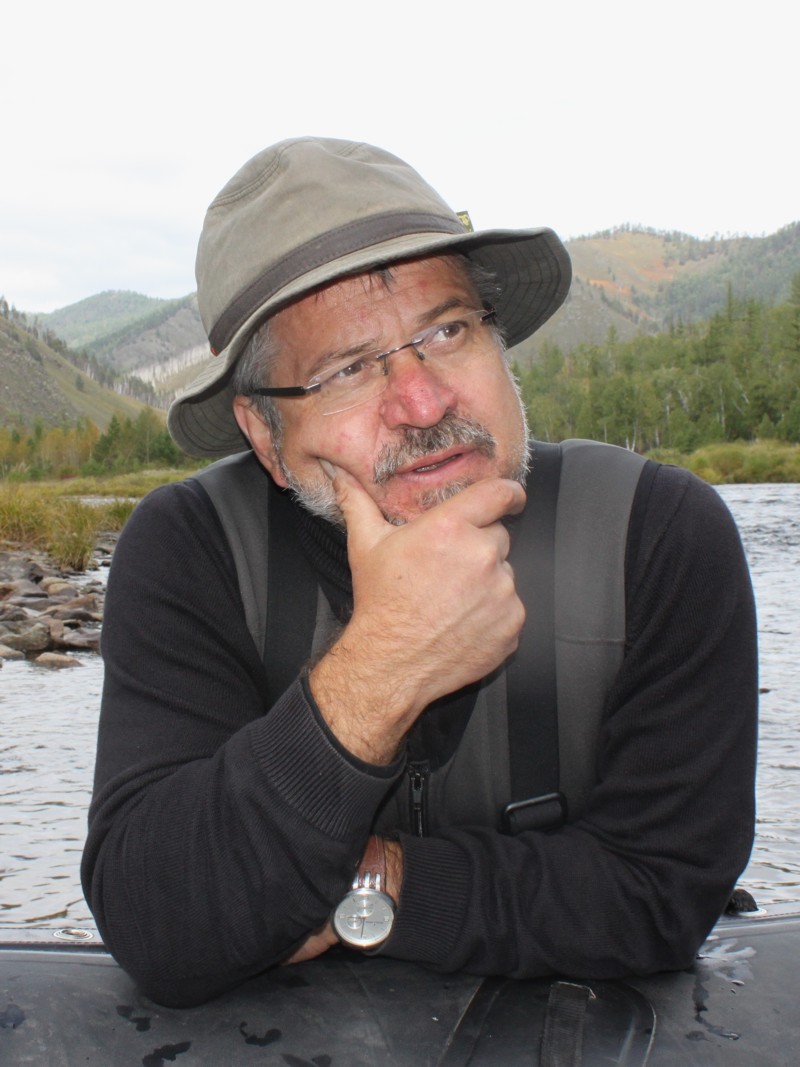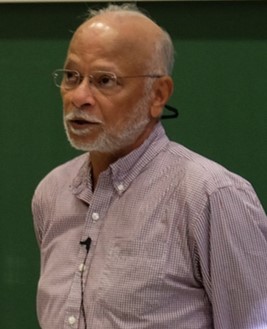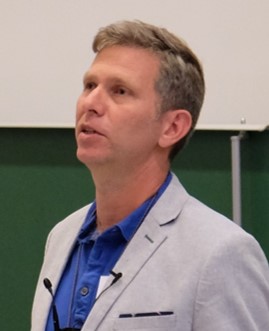

Organizers
Prof. Peter Krebs
 Peter Krebs studied civil engineering at the Swiss Federal Institute of Technology (ETH) in Zurich, Switzerland, where he later headed the Urban Drainage Section at the Laboratory of Hydraulics, Hydrology and Glaciology as a research engineer and lecturer from 1989 to 1991, and also obtained his PhD. He continued his career at the Institute for Hydromechanics of University of Karlsruhe, the Swiss Federal Institute for Environmental Science and Technology (EAWAG) and ETH Zurich. Since 1998, he is Director of the Institute of Urban and Industrial Water Management and holds the Chair of Urban Water Management at TU Dresden. In 2006, he became Speaker of the Department of Hydrosciences at TU Dresden. His research fields are related to transport and conversion processes in the sewer system, innovative processes in wastewater treatment and management, and modelling of the integrated wastewater system: catchment, sewer system, wastewater treatment plant and receiving water.
Peter Krebs studied civil engineering at the Swiss Federal Institute of Technology (ETH) in Zurich, Switzerland, where he later headed the Urban Drainage Section at the Laboratory of Hydraulics, Hydrology and Glaciology as a research engineer and lecturer from 1989 to 1991, and also obtained his PhD. He continued his career at the Institute for Hydromechanics of University of Karlsruhe, the Swiss Federal Institute for Environmental Science and Technology (EAWAG) and ETH Zurich. Since 1998, he is Director of the Institute of Urban and Industrial Water Management and holds the Chair of Urban Water Management at TU Dresden. In 2006, he became Speaker of the Department of Hydrosciences at TU Dresden. His research fields are related to transport and conversion processes in the sewer system, innovative processes in wastewater treatment and management, and modelling of the integrated wastewater system: catchment, sewer system, wastewater treatment plant and receiving water.
Qualification and career
since 2006 - Speaker of the Department of Hydrosciences, TU Dresden
since 1998 - Director of Institute of Urban and Industrial Water Management & Chair of Urban Water Management, TU Dresden
seit 1998 - Senior Lecturer in UNEP courses on Environmental Management and Water Management, Dresden
"Centre for International postgraduate studies of environmental management" (CIPSEM)
1994-1997 - Senior Lecturer, Swiss Federal Institute of Technology (ETH), Zurich
1994-1997 - Senior Research Engineer, Swiss Federal Institute for Environmental Science and Technology (EAWAG), Dübendorf, Switzerland
1991-1993 - Research Associate, Institute for Hydromechanics, University of Karlsruhe, Germany
1991 - PhD defence (Dr sc techn), ETH Zurich, Subject: Modelling and improvement of current in secondary settling tanks
1989-1991 - Head of the Urban Drainage Section, Laboratory of Hydraulics, Hydrology and Glaciology (VAW), ETH Zurich
1988-1990 - Senior Lecturer, University of Applied Sciences, Rapperswil, Switzerland
1985-1986 - Post Graduate Studies on Water Protection, Swiss Federal Institute for Environmental Science and Technology (EAWAG), Zurich, Switzerland
1983-1989 - Research Engineer, Laboratory of Hydraulics, Hydrology, and Glaciology (VAW), ETH Zurich
1978-1983 - Study of civil engineering at Swiss Federal Institute of Technology (ETH) in Zurich, Switzerland
Memberships and committee activities
IWA - International Water Association
IAHR - International Association of Hydraulic Engineering and Research
DWA - German Association for Water, Wastewater and Waste
since 1999 - IWA / IAHR - Sewer sediments and processes working group
2000-2006 - IWA / IAHR - Joint Committee on Urban Drainage
2000-2003 - IWA - Management Committee: Specialist group on Environmental Engineering Education
1994-1998 - Management Committee of COST 682
Research fields
Transport and conversion processes in the sewer system; Infiltration and exfiltration through un-tight sewer systems; Innovative processes in wastewater treatment; Antibiotics resistance in wastewater treatment plants (WWTP); Management and modelling of the integrated wastewater system: catchment, sewer system, wastewater treatment plant and receiving water; Regional matter and water flux analysis; IWRM - Integrated Water Resources Management; Effects of climate and demographic change on the wastewater systems
Teaching activities
Principles of Sewer Systems; Principles of Water Supply, Urban Water Modelling and Management; Integrated Water Resources Management; Operation and Optimization of Wastewater Treatment Systems.
Schindler N., Tränckner J. and Krebs P. (2010). Extreme value statistics for river quality simulations. Water Science and Technology, 61 (2), 397-406.
Blumensaat F., Wolfram M. and Krebs P. (2012). Sewer model development under minimum data requirements. Environmental Earth Sciences, 65 (5), 1427-1437
Karpf C. and Krebs P. (2011). Quantification of groundwater infiltration and surface water inflows in urban sewer networks based on a multiple model approach. Water Research, 45 (19), 3129-3136.
Zhang J., Wang J., Hua P. and Krebs P. (2015a). The qualitative and quantitative source apportionments of polycyclic aromatic hydrocarbons in size dependent road deposited sediment. Science of the Total Environment, 505, 90-101.
Zhang J., Hua P. and Krebs P. (2015b). The build-up dynamic and chemical fractionation of Cu, Zn and Cd in road-deposited sediment. Science of the Total Environment, 532 (2015) 723–732.
Prof. Dietrich Borchardt
 Dietrich Borchardt holds a Master in fisheries biology, a PhD in Hydrobiology and a Habilitation on modelling anthropogenic impacts upon aquatic ecosystems functions (University of Kassel 2001). He currently holds a full professorship at Technical University of Dresden, Germany and is head of Department Aquatic Ecosystem Analysis and Management at Helmholtz Centre for Environmental Research – UFZ in Magdeburg, Germany. He has more than 25 years of extensive research experience in aquatic ecology, ecological modelling, urban water management and integrated management of aquatic ecosystems within the terrestrial environment. His current research is on integrated analysis of aquatic ecosystems in which the characteristics, that are influenced by natural dynamics and anthropogenic impacts, are investigated on a catchment scale.
Dietrich Borchardt holds a Master in fisheries biology, a PhD in Hydrobiology and a Habilitation on modelling anthropogenic impacts upon aquatic ecosystems functions (University of Kassel 2001). He currently holds a full professorship at Technical University of Dresden, Germany and is head of Department Aquatic Ecosystem Analysis and Management at Helmholtz Centre for Environmental Research – UFZ in Magdeburg, Germany. He has more than 25 years of extensive research experience in aquatic ecology, ecological modelling, urban water management and integrated management of aquatic ecosystems within the terrestrial environment. His current research is on integrated analysis of aquatic ecosystems in which the characteristics, that are influenced by natural dynamics and anthropogenic impacts, are investigated on a catchment scale.
Curriculum vitae
1979 - 1985
Study of Biology, Universities of Göttingen and Hamburg
1986 - 1988
Scientist at Federal Institute of Hydrology, Koblenz (Germany)
1989 - 1992
Research Assistant University of Kassel
1992
PhD at Faculty of Geo- and Biosciences, University of Karlsruhe
1998 - 1999
Guest Scientist Swiss Federal Institute of Aquatic Sciences and Technology (EAWAG)
1999 - 2003
Head of the Interdisciplinary Working Group Water Research and Management at University of Kassel
2000
Habilitation at Faculty of Civil Engineering, University of Kassel
2003 - 2005
Managing Director Institute of Water Research and Management, Kassel
2005 - 2007
Head of the Department Integrated Water Management (INTEGER) at the Center for Environmental Systems Research (CESR)
since 2007
Head of Department Aquatic Ecosystem Analysis and Management (ASAM) at UFZ and Full-Professor at Technical University of Dresden
Activities in the scientific community, honors, awards
since 1992
Technical-scientific working groups on water resources management issues of German Water Associations DWA and BWK
1996 - 1998
Habilitation funds from German Research Foundation (DFG)
2003 - 2009
Appointed member of DFG-Senate Commission on Water Research (Vice-chair 2006 - 2009)
since 2005
Scientific Advisory Board to the International Hydrological Programme (IHP/HWRP)
since 2008
Member Steering Committee Swiss National Research Programme
"Sustainable Water Management" (NFP 61)
since 2008
Chairman Expert Panel "Round Table on Water Protection Werra/Weser and Potash Mining"
since 2011
Chairman Expert Panel "Safety and environmental compatibility of hydrofracking for natural gas production from unconventional reservoirs"
since 2015
Chairman of the Scientific Advisory Board to the International Hydrological Programme IHP/HWRP
Research fields
Functional ecology of surface waters
Hydro-ecological and water-quality modelling
Ecological efficiency of rehabilitation measures
Integrated water resources management
Teaching activities
Immission-oriented requirements for combined sewer overflow and rainwater drainage; Hydro-ecological modelling; Integrated Catchment Analysis; Integrated Water Resources Management.
Dupas, R., Jomaa, S., Musolff, A., Borchardt, D., Rode, M., (2016): Disentangling the influence of hydroclimatic patterns and agricultural management on river nitrate dynamics from sub-hourly to decadal time scales. Sci. Total Environ. 571 , 791 – 800.
Hartwig, M., Schäffer, M., Theuring, P., Avlyush, S., Rode, M., Borchardt, D., (2016): Cause–effect–response chains linking source identification of eroded sediments, loss of aquatic ecosystem integrity and management options in a steppe river catchment (Kharaa, Mongolia). Environ. Earth Sci. 75(10), art. 855.
Karthe, D., Heldt, S., Houdret, A., Borchardt, D., 2015. IWRM in a country under rapid transition: lessons learnt from the Kharaa River Basin, Mongolia. Environmental Earth Sciences 73(2), 681-695.
Kalbus, E., Kalbacher, T., Kolditz, O., Kruger, E ., Seegert, J., Rostel, G., Teutsch, G., Borchardt, D., Krebs, P., 2012. Integrated Water Resources Management under different hydrological, climatic and socio-economic conditions. Environmental Earth Sciences 65(5), 1363-1366.
Prof. Suresh Rao
 © Greta Jäckel
© Greta Jäckel
Suresh Rao is the Lee A. Reith Distinguished Professor of Environmental Engineering in the Lyles School of Civil Engineering in College of Engineering at Purdue University, with a joint appointment as a Distinguished Professor in the Agronomy Department in the College of Agriculture. Dr. Rao’s professional interests over have a strong emphasis on interdisciplinary research and graduate education at the intersection of engineering and science with diverse environmental and ecological applications.His work has spanned from lab-scale, process-level studies on environmental fate and transport of various contaminant classes, to aquifer-scale and watershed-scale and aquifer-scale studies on water-quality impacts of agricultural, urban, and industrial land uses. Dr. Rao has been involved in development and use of sophisticated models for research purposes and parsimonious models for decision making, with applications in soil quality assessments, groundwater vulnerability, contaminated site remediation, and watershed management.
Dr. Suresh Rao is the Lee A. Reith Distinguished Professor of Environmental Engineering in the Lyles School of Civil Engineering in College of Engineering at Purdue University, with a joint appointment as a Distinguished Professor in the Agronomy Department in the College of Agriculture. He also holds an Affiliated Professor appointment in the College of Engineering Division of Environmental & Ecological Engineering. At Purdue, he has served as the Associate Dean of Engineering of Graduate & Interdisciplinary Graduate Programs. Prior to joining Purdue University in July 1999, Dr. Rao served for 25 years on the faculty at the University of Florida, where he now holds the Emeritus Graduate Research Professor appointment.
Dr. Rao’s professional interests over the past four decades have had a strong emphasis on inter-disciplinary research and graduate education at the intersection of engineering and science with diverse environmental and ecological applications. Dr. Rao’s work has spanned from lab-scale, process-level studies on environmental fate and transport of various contaminant classes, to aquifer-scale and watershed-scale and aquifer-scale studies on water-quality impacts of agricultural, urban, and industrial land uses. Dr. Rao has been involved in development and use of sophisticated models for research purposes and parsimonious models for decision making, with applications in soil quality assessments, groundwater vulnerability, contaminated site remediation, and watershed management.
His most recent research and educational interests have focused on the areas of water & food security and sustainability issues, with specific projects on: (1) landscape transitions under human impacts, including intensive food production and urbanization, (2) multi-scale modeling/analysis of hydrologic and biogeochemical responses of agricultural and urban catchments under natural and anthropogenic forcing; and (3) resilience analysis of coupled, complex (natural, engineered, social) systems, including inter-dependence of infrastructure networks and systems.
Dr. Rao has taught disciplinary and inter-disciplinary courses, including “Vadose Hydrology” & “Contaminant Subsurface Hydrology”, as a part of the inter-disciplinary graduate program in Hydrologic Sciences at the University of Florida; and “Contaminant Hydrology”, and “Remediation Science & Engineering”, Complex Systems” at Purdue University. Currently, he teaches graduate courses with a focus on sustainability and resilience: “Global Water Resources Sustainability”, “Ecological Resilience & Sustainability”, “Transport Processes in Nature”, “Complex Coupled Systems”, and “Resilience Engineering”, as a part of the campus-wide interdisciplinary graduate program in Ecological Science and Engineering, and engineering-wide undergraduate program in Environmental & Ecological Engineering.
Dr. Rao’s research has been documented in more than 300 refereed publications, book chapters, technical reports, and conference proceedings. He has been named as one of the 100-most-cited authors in Environmental Science and Engineering, by the ISI Highly Cited Researchers. Dr. Rao was one of the four founding Editors-in-Chief for the Journal of Contaminant Hydrology (Elsevier), and has also served as an Associate Editor for Water Resources Research (American Geophysical Union), Environmental Chemistry & Toxicology (SETAC), and Journal of Environmental Quality (American Society of Agronomy). Dr. Rao was elected as Fellow of the American Geophysical Union, the Soil Science Society of America, and the American Society of Agronomy. He received the Soil Science Research Award presented by SSSA, the Environmental Research Award presented by ASA.
Dr. Rao has travelled extensively in Asia, Europe, Africa, Australia, and South America, to present invited talks at international conferences and workshops. He has travelled for two weeks in Malawi under a USAID project (University of Florida). He has been a frequent visitor to Australia, and has conducted collaborative research through CRC CARE & University of South Australia (Adelaide), and CSIRO (Perth), including a sabbatical leave in Perth, Western Australia. He also maintains active research collaboration with colleagues in Switzerland, Italy, Sweden, Germany, and South Korea. He recently spent a six-week sabbatical leave at Korea University (Seoul), and a four-month sabbatical leave at the Helmholtz Zentrum fur Umweltforschung (UFZ), in Leipzig (Germany).
Academic Background
University of Hawaii at Manoa, PhD (1974)
Colorado State Univesity, MS (1970)
APA University, B.Sc. (1967)
Professional Positions
Purdue University:
- Lee A. Reith Chair & Distinguished Professor, School of Civil Engineering & Department of Agronomy (July 1999 – present); Division of Environmental and Ecological Engineering (July 2009-present)
- Associate Dean of Engineering, Graduate Education & Professional Education (March 2002-December 2005)
- Emeritus Graduate Research Professor, University of Florida, Gainesville, FL (July 1999 present)
University of Florida:
- Director, Center for Natural Resources (June 96- May 99)
- Graduate Research Professor, Soil & Water Sci. (June 93-May 99)
- University of Florida Research Foundation Professor (1998-May 1999)
- Professor, Soil & Water Sci., (1985-93); Affiliate Prof., Env. Eng. Sci., (1985-99)
- Affiliate Professor, Food Sci./Human Nutrition, (1985-99); Assoc. Professor, Soil Sci., (1982-85)
- Asst. Professor, Soil Sci., (1979-82); Asst. Res. Sci., Soil Sci., (1977-79); Post-Doc Res. Assoc., Soil Sci., (1975-77)
University of Hawaii-Manoa:
- Grad. Res. Asst. (1970-74)
- Visiting Prof. (1985-86; sabbatical)
Selected Research Projects
- Innovative flux-based characterization and enhanced remediation of contaminated aquifer sites at industrial sites
- Fate and transport of pharmaceuticals and estrogens in croplands
- Multi-scale catchment modeling of coupled hydrologic and biogeochemical processes in intensely managed landscapes and river networks
- Linking hydro-climatic forcing, bathymetry, hydrologic variability of wetlands and vegetation ecological adaptation
- Resilience of Inter-dependent Urban Infrastructure Networks (Water, Transportation, Electricity Systems)
Recent International Review Panels:
- KTH, Stockholm, Sweden [Served on an international panel which reviewed Civil Engineering & Land/Water & Environmental Engineering programs]
- Helmholtz Association, Germany [Chair, international panel which reviewed all “Terrestrial Environment” research programs at three research centers; March 2013]
- CSIRO, Australia [Served on an international panel which reviewed “Division of Land & Water” research programs in Australia; October 2013]
Basu, N.B., Destouni, G., Jawitz, J.W., Thompson, S.E., Loukinova, N.V., Darracq, A., Zanardo, S., Yaeger, M., Sivapalan, M., Rinaldo, A., and Rao, P.S.C., 2010. "Nutrient Loads Exported from Managed Catchments Reveal Emergent Biogeochemical Stationarity" (2010GL045168), Geophysical Research Letters, Vol. 37, GL045168
Basu, N.B., Rao, P.S.C., Winzler, H.E., Owens, P., and Merwade, V., 2010. Parsimonious modeling of hydrologic responses in engineered watersheds: Structural heterogeneity versus functional homogeneity. Water Resources Research, Vol. 46, W04501
Botter, G., Basu, N.B., Zanardo, S., Rao, P.S.C., and Rinaldo, A., 2010. Climatic, hydrologic and biogeochemical controls on nutrient losses in streams, Water Resources Research, Vol. 46, W08509
Mu, D.Y., Seager, T., Rao, P.S.C., Park, J., and Zhao, F., 2010. Comparative Life Cycle Assessment of Ligno-cellulosic Ethanol Production: Biochemical Versus Thermochemical Conversion, Environmental Management, 46(4), 565-578.
Mu, D.Y., Seager, T., Rao, P.S.C., and Zhao, F., 2010. A Resilience Perspective of Biofuels Production, Integrated Environmental Assessment & Management (In Press)
Brooks, M.C., Wood, A.L., Annable, M.D., Hatfield, K., Cho, J., Holbert, C., Rao, P.S.C., Enfield, C., Lynch, K., and Smith, R., 2008. Changes in contaminant mass discharge from DNAPL source mass depletion: Evaluation at two field sites. Journal of Contaminant Hydrology, 102(1-2): 140-153.
Basu, N.B., Rao, P.S.C., Poyer, I.C., Nandy, S., Mallavarupu, M., Naidu, R., Davis, G.B., and Patterson, B., 2009. Integration of traditional and innovative characterization techniques for flux-based assessment of dense non-aqueous phase liquid (DNAPL) sites. Journal of Contaminant Hydrology, 105(3-4):161-172.
Basu, N.B., Rao, P.S.C., Falta, R.W., Annable, M.D., Jawitz, J.W., and Hatfield, K., 2008. Temporal evolution of DNAPL source and contaminant flux distribution: Impacts of source mass depletion. Journal of Contaminant Hydrology, 95(3-4): 93-109.
Prof. James W. Jawitz
 © Greta Jäckel
James Jawitz is a professor and the associate chair of the Soil and Water Science Department at the University of Florida, USA. His degrees are in environmental engineering, including a PhD from the University of Florida in 1999. He taught in the civil engineering departments at Purdue University and the University of Illinois at Chicago prior to returning to the University of Florida in 2001. He directs the Environmental Hydrology Laboratory with research related to water resource sustainability, specifically focusing on securing sufficient water resources for urban and agricultural users while also ensuring protection for natural hydrologic systems. He has made significant impacts in the fields of hydrology of wetlands and managed landscapes, groundwater quality protection, and
© Greta Jäckel
James Jawitz is a professor and the associate chair of the Soil and Water Science Department at the University of Florida, USA. His degrees are in environmental engineering, including a PhD from the University of Florida in 1999. He taught in the civil engineering departments at Purdue University and the University of Illinois at Chicago prior to returning to the University of Florida in 2001. He directs the Environmental Hydrology Laboratory with research related to water resource sustainability, specifically focusing on securing sufficient water resources for urban and agricultural users while also ensuring protection for natural hydrologic systems. He has made significant impacts in the fields of hydrology of wetlands and managed landscapes, groundwater quality protection, and
catchment - scale water quality modeling. His work encompasses field experiments, laboratory studies, theoretical developments, and mathematical modeling.
Education
1999 - Ph.D. Environmental Engineering, University of Florida, Gainesville, Florida
1995 - M.E. Environmental Engineering, University of Florida
1992 - B.S. Environmental Engineering with Honors, University of Florida
Professional appointments
Soil and Water Science Department, University of Florida
2012-today - Professor and Associate Chair
2011 - Professor
2007 - Associate Professor and Graduate Coordinator (through 2010)
2001 - Assistant Professor
Civil and Materials Engineering, University of Illinois at Chicago
2000 - Assistant Professor
School of Civil Engineering, Purdue University
1999 - Assistant Professor (Visiting)
Synergistic activities
2016 - Judge, $10M George Barley Water Prize, a freshwater innovation challenge that seeks to find a cost-effective solution to the phosphorus-pollution problem threatening the Everglades.
2014 - Guest Editor, Special issue of Journal of Contaminant Hydrology
2013 - Co-chair and host of GQ2013 conference, the eighth triennial international groundwater quality meeting of the International Association of Hydrological Sciences; c. 200 international attendees
2013 - Programmatic review of the Helmholtz Centre for Environmental Research (UFZ) Terrestrial Environment research program (Leipzig, Germany). Annual operating budget €500M (c. $650M).
2003 - 2012 - Convener of sessions on landscape-scale wetland networks at the quadrennial 2012 INTECOL International Wetlands Conference, and at the 2012 American Geophysical Union Fall Meeting. Also, convener of special sessions at the AGU Joint Assemblies in Ft Lauderdale, FL (2008) and Acapulco, Mexico (2007), the AGU Fall Meeting in San Francisco, CA (2006 and 2001), and the European Geophysical Union Annual Meeting in Nice, France (2003). Session topics were related to advances in water quality assessment and ecosystem restoration.
Jawitz, J.W., 2004. Moments of truncated continuous univariate distributions. Advances in Water Resources, 27(3): 269-281.
Jawitz, J.W., Fure, A.D., Demmy, G.G., Berglund, S., and Rao, P.S.C., 2005. Groundwater contaminant flux reduction resulting from nonaqueous phase liquid mass reduction. Water Resources Research, 41, W10408, doi:10.1029/2004WR003825, pp. 1-15.
Wang, H., Jawitz, J.W., White, J.R., Martinez, C.M., and Sees, M., 2006. Rejuvenating the largest municipal treatment wetland in Florida. Ecological Engineering, 26(2): 132-146, doi: 10.1016/j.ecoleng.2005.07.016
JBasu, N.B., Destouni, G., Jawitz, J.W., Thompson, S.E., Loukinova, N.V. , Darracq, A., Zanardo, S., Yaeger, M., Sivapalan, M., Rinaldo, A., and Rao, P.S.C., 2010. Nutrient loads exported from managed catchments reveal emergent biogeochemical stationarity, Geophysical Research Letters, 37, L23404, 1-5, doi:10.1029/2010GL045168.
Jawitz, J.W., and Mitchell, J. , 2011. Temporal inequality of catchment discharge and solute export. Water Resources Research, 47, W00J14, doi:10.1029/2010WR010197.
Padowski, J.C. , and J. W. Jawitz, 2012. Water availability and vulnerability of 225 large cities in the United States, Water Resources Research, 48, W12529, doi:10.1029/2012WR012335.
Kaplan, D.A., Paudel, R., Cohen, M.J., and Jawitz, J.W., 2012. Orientation matters: Patch anisotropy controls discharge competence and hydroperiod in a patterned peatland. Geophysical Research Letters, 39, 17, doi:10.1029/2012GL052754.
McCarty, C., and Jawitz, J.W., 2013. Attitudes about publishing and normal science advancement, Journal of Informetrics, 7(4): 850-858.
JHopkins, A.L., Jawitz, J.W., McCarty, C., Goldman, A., and Basu, N.B., 2013. Disparities in publication patterns by gender, race and ethnicity based on a survey of a random sample of authors, Scientometrics, 96: 515-534, doi: 10.1007/s11192-012-0893-4.
Yang, M., Annable, M.D., and Jawitz, J.W., 2014. Light reflection visualization to determine solute diffusion into clays, Journal of Contaminant Hydrology, 161: 1-9.
Since 2013, International Summerschools are organized each year at the five Schools of TU Dresden, supported by TU Dresden’s Institutional Strategy. TU Dresden’s Institutional Strategy is funded by the Excellence Initiative of the German Federal and State Governments.

